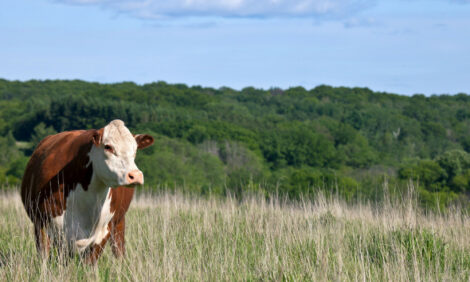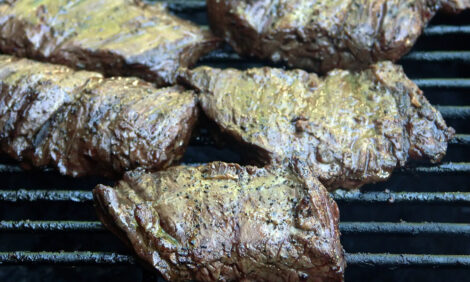



Indiana Bovine TB Case Prompts Cattle Restrictions in Wisconsin
US - A case of bovine tuberculosis (TB) was formally diagnosed in a white‐tailed deer in Franklin County, Indiana, last week, prompting extra testing of cattle in the state.This marks the first time the disease (more formally known as Mycobacterium bovis) has been found in a wild animal in Indiana. The infected deer was found through surveillance efforts on a farm where TB was found in cattle in April.
Under federal requirements, finding TB in a free-ranging wild animal means testing of all cattle must expand from 3 miles to 10 miles and surveillance in hunter-harvested deer will intensify. For cattle owners in Franklin County and portions of some adjoining counties, the Indiana State Board of Animal Health (BOAH) staff will be finding out if cattle in the 10-mile circle are test-eligible, and if so, schedule herd testing.
“This is an enormous undertaking that cannot be completed overnight,” said Indiana State Veterinarian Bret D. Marsh, DVM.
“Farmers and hunters in this area have been extremely cooperative and supportive of our efforts over the years. We need their help now more than ever as we widen our surveillance efforts. If this disease is out there - either on farms or in the wild - we need to find it. Our status as a TB-free state is critical to our growing and thriving cattle and dairy industries in this state.”
Following the finding, cattle and bison entering Wisconsin state were put under extra restrictions. All Indiana cattle and bison of any age except those going directly to slaughter will require a negative TB test within 60 days prior to entering the state, announced Dr Paul McGraw, Wisconsin's State Veterinarian.
"This is a precautionary step that is taken on a case-by-case basis when a state identifies a new herd affected by tuberculosis," Dr McGraw said.
TheCattleSite News Desk


